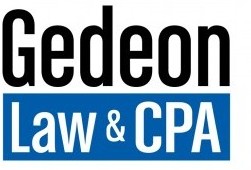Wouldn’t it be nice if your business can take a tax deduction for funding your child’s college education? Well, if your child is older than 6 years old, then this article will show you how Uncle Sam can help subsidize junior’s college education.
Moreover, whether you own a corporation or are a sole proprietor, this tax strategy will work for you. As an added benefit, if you are a sole proprietor, then you get an even better tax break by following this strategy because there are no payroll taxes when a child under age 18 is employed by his or her parent.
The best way to understand how this tax strategy works is through an example.
Say your business pays Junior $5,000 for work he did in your business this year. Let’s also assume Junior is 7 years old and will be working in your business for the next 11 years until he turns 18.
At this point, you’re probably wondering, isn’t my 7 year old child too young to be working for my business? Well, the good news is the tax code does not have a minimum age for paying an employee. Moreover, with a few exceptions related to hazardous occupations, parents employing their children are exempt from labor laws.
So, going back to our example, the payment to Junior obviously saves your business $5,000, which results in a tax saving to your business of say $1,000.
Because of the standard deduction available to Junior, he owes no tax on the $5,000 of income earned from your business.
Since the $5,000 was not taxable to Junior, he turns around and makes a non tax deductible contribution to a Roth IRA.
Now for the good part. Uncle Sam let you pocket $1,000 cash to put $5,000 in your child’s Roth IRA. Think of this IRA as the start of Junior’s college fund.
Why, because say you do this for the next 11 years and Junior earns an average return of 5% a year tax free, the value in the Roth IRA is now close to $75,000. On top of this college nest egg, your business has benefited from a tax deduction each year. In essence, Uncle Sam has been paying you to help Junior pay for college.
But it gets better.
First, even with a big college nest egg, most public universities won’t prohibit Junior from taking out a student loan. In fact, the federal student aid (FAFSA) does not count a Roth IRA as an asset for evaluating college aid.
Second, the tax law is very favorable when Junior starts withdrawing money from the Roth IRA account to pay for college. In particular, Junior won’t be subject to the early withdrawal penalty to the extent of his higher education expenses paid for from the Roth IRA. In addition, Junior is always entitled to a tax-free withdrawal of his basis in the Roth IRA. In our example, that’s equal to the $55,000 Junior contributed to the Roth IRA.
There are many tax saving strategies like this one that business owners can take advantage of by employing family members in their business. At Gedeon Law & CPA, we can assist you with evaluating these strategies and putting together the right documentation to comply with the tax laws.



